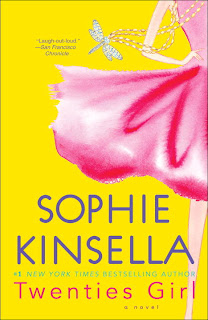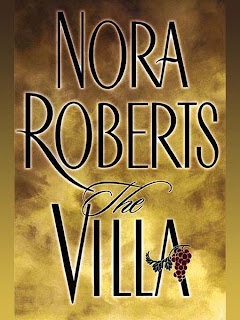 My friend told me if I were to read any James Patterson book, it should be "Along Came A Spider" and since I really liked "Mary Mary" I decided to try this one. I think because this book came before the other book, Patterson mentions much more descriptiong of Cross and the other characters. It completly changed the way I imagined Cross in my head. Its like when you read a book before the movie comes out and the actor they cast it completly different than how you pictures, except I had justed missed the vital details Patterson lets on. Like that Cross is over 6 feet tall, a characteristic thats hard not to imclude when I picture him now. I also came to the realization that the 'grandma' that lives with Alex isn't his kinds grandma, his mother, but his actual grandma. I often reread books because there the little things that people tend to scan over and things just make so much more sence when the whole picture is finally put together.
My friend told me if I were to read any James Patterson book, it should be "Along Came A Spider" and since I really liked "Mary Mary" I decided to try this one. I think because this book came before the other book, Patterson mentions much more descriptiong of Cross and the other characters. It completly changed the way I imagined Cross in my head. Its like when you read a book before the movie comes out and the actor they cast it completly different than how you pictures, except I had justed missed the vital details Patterson lets on. Like that Cross is over 6 feet tall, a characteristic thats hard not to imclude when I picture him now. I also came to the realization that the 'grandma' that lives with Alex isn't his kinds grandma, his mother, but his actual grandma. I often reread books because there the little things that people tend to scan over and things just make so much more sence when the whole picture is finally put together.Thursday, November 11, 2010
Along Came A Spider James Patterson
 My friend told me if I were to read any James Patterson book, it should be "Along Came A Spider" and since I really liked "Mary Mary" I decided to try this one. I think because this book came before the other book, Patterson mentions much more descriptiong of Cross and the other characters. It completly changed the way I imagined Cross in my head. Its like when you read a book before the movie comes out and the actor they cast it completly different than how you pictures, except I had justed missed the vital details Patterson lets on. Like that Cross is over 6 feet tall, a characteristic thats hard not to imclude when I picture him now. I also came to the realization that the 'grandma' that lives with Alex isn't his kinds grandma, his mother, but his actual grandma. I often reread books because there the little things that people tend to scan over and things just make so much more sence when the whole picture is finally put together.
My friend told me if I were to read any James Patterson book, it should be "Along Came A Spider" and since I really liked "Mary Mary" I decided to try this one. I think because this book came before the other book, Patterson mentions much more descriptiong of Cross and the other characters. It completly changed the way I imagined Cross in my head. Its like when you read a book before the movie comes out and the actor they cast it completly different than how you pictures, except I had justed missed the vital details Patterson lets on. Like that Cross is over 6 feet tall, a characteristic thats hard not to imclude when I picture him now. I also came to the realization that the 'grandma' that lives with Alex isn't his kinds grandma, his mother, but his actual grandma. I often reread books because there the little things that people tend to scan over and things just make so much more sence when the whole picture is finally put together.Wednesday, November 3, 2010
Twenties Girl Sophie Kinsella

Mary, Mary James Patterson

Friday, June 11, 2010
The Fortunes of Indigo Skye by Deb Caletti
The Help Kathryn Stockett
Saturday, June 5, 2010
The Villa by Nora Roberts

Tuesday, April 6, 2010
Undomesticated Goddess by Sophie Kensella
Confessions of Georgia Nicolson Louise Rennison's
Sunday, March 14, 2010
The Art of Racing in the Rain by Garth Stein

Thursday, January 21, 2010
Dear John Nicholas Sparks

Wednesday, January 20, 2010
Alices Adventures in Wonderland by Lewis Carroll
Copywrited in 1941, Lewis Carroll tells his tale of Alices adventures. Because like many kids, I grew up watching every Disney movie, I never really understood Alice in Wonderland. Just that a younge, curiouse girl, kept growing and shrinking talking to odd creatures including a catipillar and dissappearing cat. I'm glad I picked up this book because it really was an interesting read. Falling into a sleep and telling the story of her vivid dream, Alice questions things nonstop. Why is it always tea time? How can a rabbit even read time? She reflects back on events that occured through her life and always second guesses the odd creatures of her dreams. Like the movie, theres a scene where a catipillar is smoking Huka and it seemed so odd becuase there would never be such a thing in a child story now with all the parental issues and censorship. Even though it is a child story, I really believe it mentions other matteres that do appeal to other people, like many child movies or books that are produced now.
Book Review:
At first glance, the appeal of Alice springs from the visual richness and variety of the stories. Quite apart from any perceived meaning of the plot or any level of characterization, the books can be read as a glorious gambol, an infinite feast of eye candy. Strange wondrous creatures in a fantastical land -- what more could the reader ask for? Indeed, the surface flash of Alice should not be discounted, as it's what younger readers will latch onto first. I remember reading Alice's Adventures in Wonderland and Through the Looking Glass as a child in just this way, analogous to my child's perspective of Gulliver's Travels. Such books puzzled me, but I liked the way they sparked my imagination (in particular, I remember being fascinated with the scene where the Lilliputians try to tie down Gulliver, and similar scenes where Alice becomes much bigger or smaller than others). As an adult, I still crave that sense of wonder and Carroll never lets me down. Swift's book is not so easy to re-read with the child's perspective as an adult -- Swift's complex screed against the follies of humanity (to characterize the meaning of the book somewhat baldly) obtrudes on the consciousness. It's trickier to discern Carroll's intent with Alice, if there is one, and so it's easier to enjoy the books at the most obvious level. More on the hunt for meaning in Alice in a minute.
--James Schellenberg
I agree with Schellenger about the interetsing take of the story and that its so different then children stories we have now and the strange characters make the book so rememberable.
Thursday, January 14, 2010
Shiver by Maggie Stiefvater

